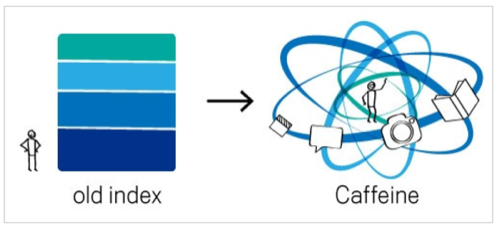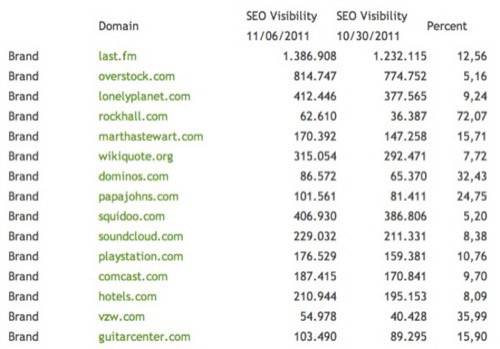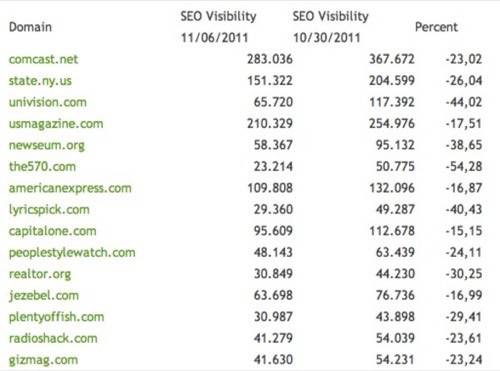Searchmetrics has measured the impact of last week’s “freshness” updates to Google’s search ranking algorithm, which affected around 35% of all searches. By measuring SEO visibility, Searchmetrics found that a clear category of sites gained prominence as a result of the update, while the few sites that lost are all over the map.

Sites that benefited from the update tend to be content sites and brand sites with frequent updates. Many are news sites, but others are travel sites or other consumer sites. The sites that lost in this update are more of a grab bag. Many of them are government websites or less time-sensitive news organizations.
The update, built upon Google’s new Caffeine search infrastructure, determines when certain search queries should return more timely content, instead of older pages that might rank higher in absolute terms. For example, a search for “olympics” is likely to want results for the 2012 Summer Olympics, rather than the Wikipedia page for “olympics.”

Searchmetrics measures SEO visibility of sites across the Web. Its results are adjusted to eliminate outliers in either relative or absolute terms. In the Caffeine update, the biggest winner was last.fm, which shares the music its users are listening to right now. It gained in SEO visibility by 12.56%. Comcast.net lost the most ground, falling 23.02%.
Caffeine winners:

Caffeine losers:

See the Searchmetrics blog for the full list.
Google Search Going Real-Time
Google’s Caffeine update is its latest effort to gather its own real-time search signals after its 2009 deal with Twitter expired. With social data from Google+, Google now has a range of ways to determine timeliness and relevance of Web content. It offers true real-time search within Google+, and it surfaces Google+ posts in Web search results.
Do you find Google’s adjustments to the timeliness of search results helpful, or do you prefer absolute page rank?

















